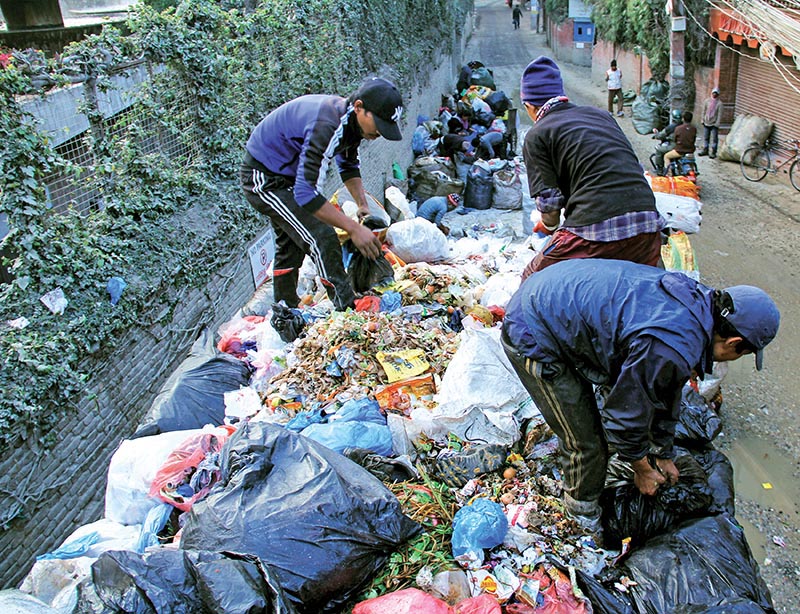IBN, Nepwaste ink initial pact to manage Valley’s solid waste
Kathmandu, March 7
The Investment Board Nepal (IBN) and Nepwaste Pvt Ltd, a Finnish joint venture company, today inked an initial agreement for the management of solid waste in Kathmandu Valley, paving way for the signing of the project development agreement (PDA) of the much-hyped Integrated Solid Waste Management Project.
Amid the agreement signing ceremony today, officials of both IBN and Nepwaste said that PDA of the project will be signed in less than two months after today’s agreement gets approved from the Cabinet.
The $50 million worth public-private-partnership project will be implemented under the build-operate-transfer (BOT) modality, according to IBN.
“We have sealed the initial agreement with Nepwaste following ample homework and discussions. Implementation of this project will be crucial to manage waste in the Valley,” said Maha Prasad Adhikari, chief executive officer at IBN.
As per the agreement inked today, Nepwaste — the project developer — will have to manage formal and informal workers associated with solid waste in Kathmandu within three months after signing the PDA and the financial closure of the project should be completed within nine months after the PDA is signed, with possible extension facility.
Similarly, Nepwaste has to complete construction of necessary facilities for project implementation within two years of signing the PDA. The project needs to be handed over to the government after 20 years of its commercial operation.
As per the agreement, the project developer will be responsible to carry out activities, including door-to-door collection of waste, street sweeping, cleaning of riverbanks, surface drainage and cleaning public places like temples, management of e-waste, management of hazardous waste, hold campaigns on waste management issues, manage medical waste and keep database of service recipients.
The project developer has been authorised to collect Rs 219 per month from every household as waste collection service fee.
Similarly, Nepwaste should deposit maximum of 20 per cent of the total collected waste at the sanitary landfill site located at Bancharedanda of Nuwakot and recycle the remaining collected waste to produce compost fertiliser, refuse derived fuel (RDF), solid recovered fuel (SRF), electricity and compressed natural gas (CNG).
Once the project comes into effect, Nepwaste will collect waste from 10 municipalities in the Valley, including Kathmandu Metropolitan City. Currently, municipalities have been collecting waste on their own.
Nepwaste will also have to address any grievance related to solid waste from the public within 24 hours from the time of receiving the complaint.






